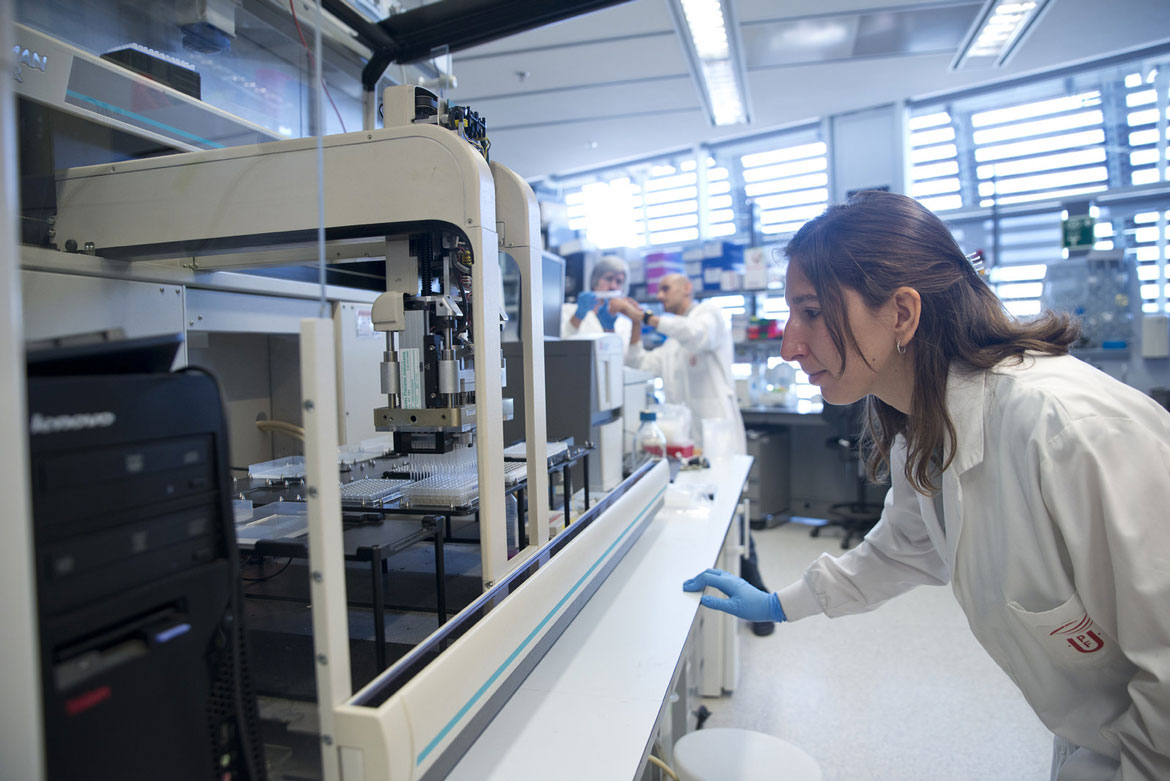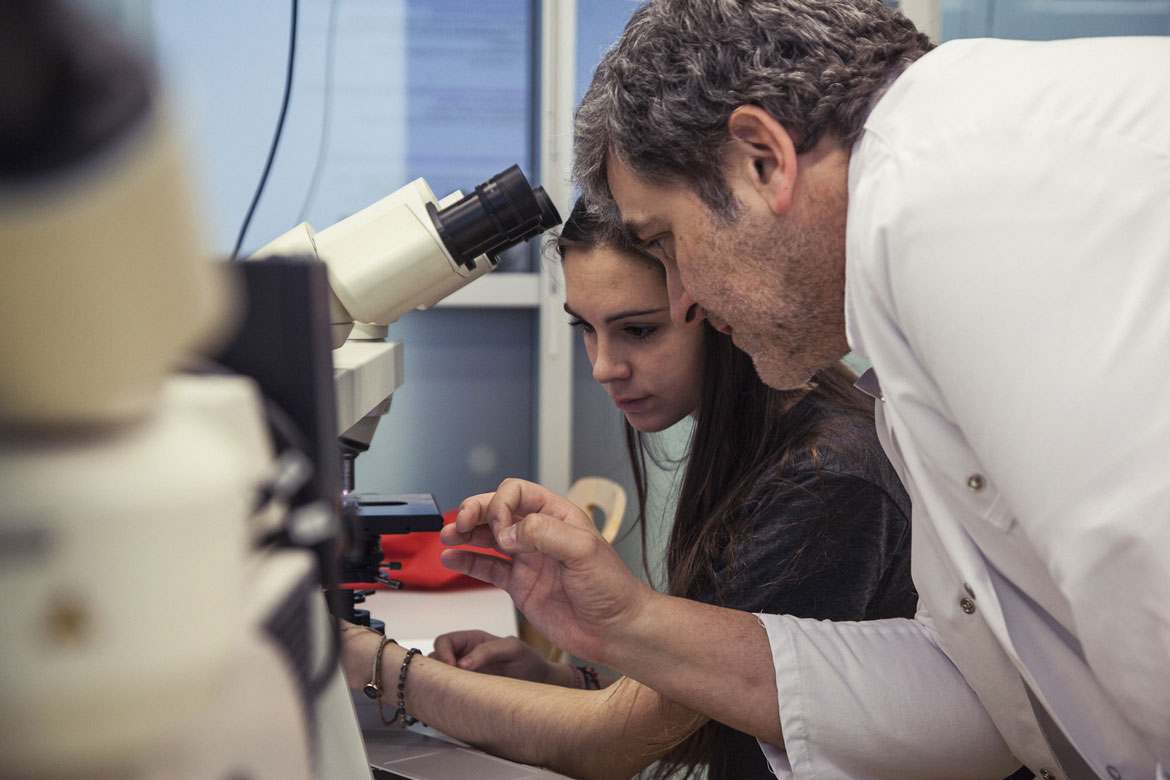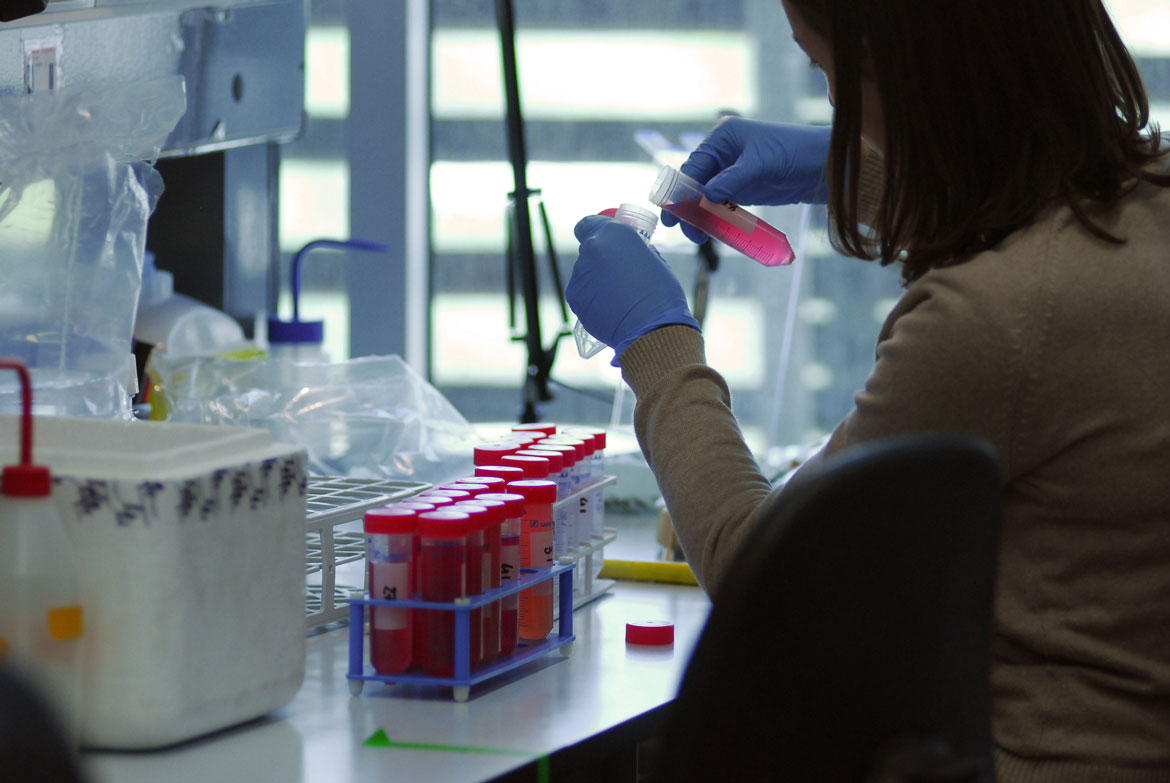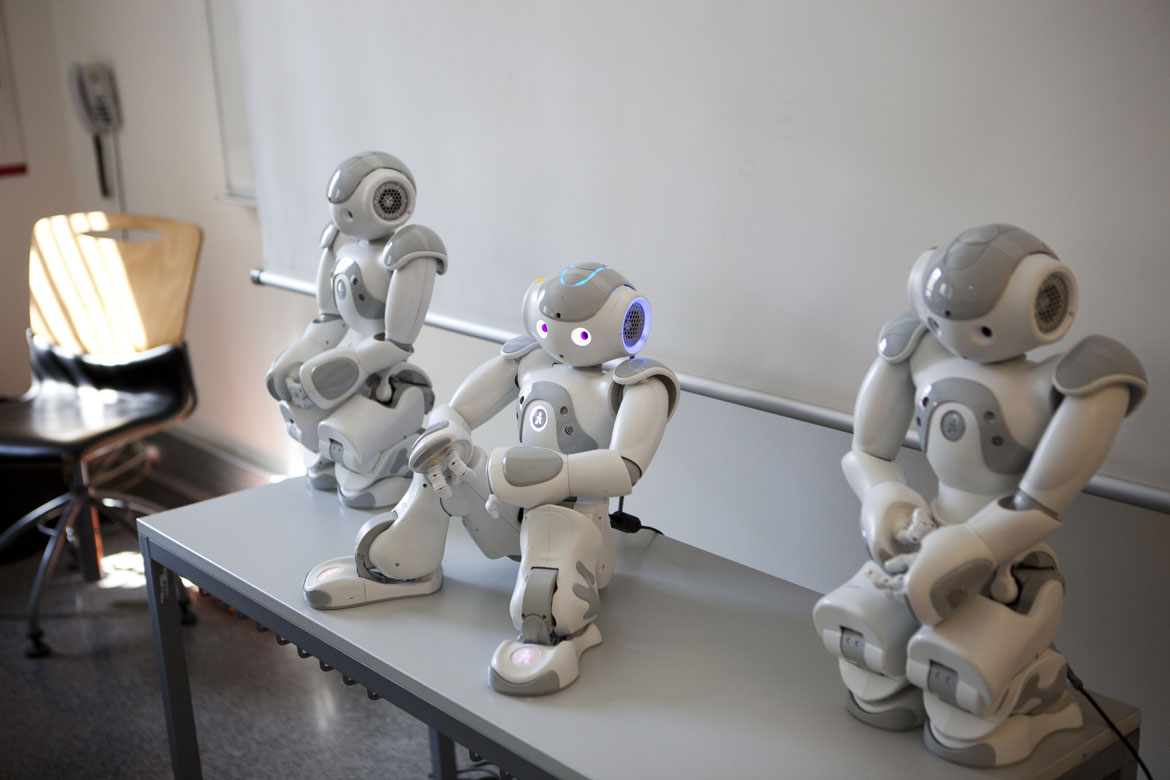Des del campus
2. From campus
Science with and for society
UPF integrates the concept of responsible research and innovation in its scientific activities, in a commitment to the values of society.
Science and technology are the driving force behind progress and social welfare. However, sometimes research and innovation also pose new risks and ethical dilemmas affecting all members of society, from which society should thus not be excluded.

With a view to bridging the current gap between research and society, as part of the Horizon 2020 programme, the European Commission is championing the concept of ‘responsible research and innovation’ (RRI). This approach seeks to enable better decision-making in the field of R&D and innovation, decisions that take both the potential benefits and the possible problems related to research and innovation into account in order to predict the consequences. Anticipation and adaptability are core elements of RRI. In the analysis of a given technology or field of research, it is increasingly necessary to establish platforms for joint reflection between researchers from different disciplines (who can provide a broader range of knowledge and data) and incorporate the views of the various stakeholders who might be involved or affected (consumers, patients, industry representatives, etc.). Decisions regarding R&D and innovation have to be not only acceptable, but also socially desirable.
According to the European Commission, RRI encompasses six key concepts: public engagement, open access, gender equality, science education, ethics in science, and governance. These elements answer the questions of what, who and how research should be conducted to comply with the values, needs and expectations of European society.
UPF, a responsible university
In keeping with its goal of being a leader in research, UPF pushes its academic community to produce competitive and responsible research. To this end, in 2013, the university created the Office of the Vice-rector for Social Responsibility and Promotion, which was renamed the Office of the Vice-Rector in charge of directing projects for social commitment and equality in 2017. Amongst other things, it is tasked with introducing RRI into the university’s different activities.
To this end, UPF has implemented several strategies. Roser Corretgé, RRI coordinator in the field of social responsibility, believes that the process of incorporating the RRI into UPF has been and is very active.
Different actions, such as teamwork with specialized personnel, the creation of a website on RRI or training and advice to the teaching and research staff, are a good basis for progress in the integration of the values that are to be promoted in the field of research.
According to Mònica Figueras, vice-rector in charge of the area, ‘Research needs to make the leap from “science and society” to “science with and for society”.’

In order to guarantee ethical standards in research and safeguard the rights of people participating in research projects involving academic practices associated with human beings, in December 2014, the university’s Board of Governors approved the creation of the Internal Committee for the Ethical Review of Projects (CIREP). This body, which currently consists of eight members from the teaching, research and technical staff with expertise in different fields of knowledge, offers all the university’s research groups an ethical review and certification process for projects, as well as guidance on issues related to ethics and personal data protection. It also offers researchers documents and guides so that they can carry out projects involving experiments, surveys and other studies with human beings in a legally and ethically acceptable way.
Separately, the projects carried out by the Department of Experimental and Health Sciences meet the Code of Good Scientific Practice of the Barcelona Biomedical Research Park (PRBB) and are subject to assessment by the PRBB’s ethics committees for clinical research (CEIC) and animal experimentation (CEEA).
“Decisions regarding R&D and innovation have to be not only acceptable, but also socially desirable.”
‘More and more research involving human beings is being conducted at the university’, explained the vice-chair of the CIREP, Josep Blat. ‘The use of personal data, for example, is an increasingly important hot-button issue due to the growing use of online research and the generation of big data. Not all aspects of the issue are covered by law. This type of research clearly poses new ethical risks and has led to a greater awareness thereof, and governments, parliaments and agencies are raising their ethical requirements accordingly.’

Marta Rodríguez Iborra, manager of the CIREP, added, ‘Reflection on the ethical debate, as well as the setting and continuous improvement of standards for reviewing research with human beings, require the active engagement of the entire UPF research community.’
Thus, the 2016-2025 Strategic Plan reflects the university’s commitment to a transformative, comprehensive and cross-disciplinary model of social responsibility. This is borne out by the inclusion of a specific mention of RRI in the definition of the research and innovation model:
Excerpt from the 2016-2025 Strategic Plan
‘To define a cross-disciplinary research and innovation model throughout UPF that is guided by the principles of responsible research and innovation (RRI), within the framework of UPF’s social responsibility policy. This includes, amongst other aspects, a commitment to gender mainstreaming, ethical responsibility, open access, science education, and community engagement.’
According to the vice-rector for research, Enric Vallduví, RRI aims to promote knowledge and mutual support between research institutions and their social environment. ‘For us, as a university, RRI reaffirms our responsibility to the society that sustains us. The ethical review of projects is an example of UPF’s commitment. We have also been proactive in, for example, implementing measures to make primary data and research results open-access through resources such as the Scientific Output Portal and the e-Repository.’
‘Research needs to make the leap from “science and society” to “science with and for society”.’
RRI in university teaching
UPF is recognized in Europe as a leading institution in the conceptualization and expansion of RRI. The university actively participates in many projects intended to integrate RRI. It is currently involved in eleven projects still underway, and it has participated in nine others that have already concluded.
Amongst these projects, attention should be called to the Higher Education Institutions & Responsible Research project (HEIRRI), aimed at integrating RRI into university degree programmes in science and technology. Launched in 2015, HEIRRI is an international consortium made up of nine international bodies, coordinated by the UPF Science, Communication and Society Studies Centre (CCS-UPF).
‘After four, six or eight years at university, students often graduate knowing all there is to know about the tiniest particle or the latest protein or star to be discovered, but knowing nothing, or very little, about the society for which they will be working for the rest of their lives’, said Gema Revuelta, director of the CCS-UPF and an expert in the field of RRI. Revuelta, who, in addition to coordinating HEIRRI, has participated in other projects, such as Neuro-Enhancement: Responsible Research and Innovation (NeRRI) or Monitoring the Evolution and Benefits of Responsible Research and Innovation (MORRI), considers ‘the introduction of RRI into university education to be fundamental, as today’s students will be tomorrow’s researchers, engineers, lawmakers, doctors, etc. Therefore, from the earliest years of their university training, they need to reflect on the impact of R&D and innovation and acquire practical skills that will allow them to listen to society and incorporate its values into their professional practice.’
"The use of personal data, for example, is an increasingly important hot-button issue due to the growing use of online research and the generation of big data. Not all aspects of the issue are covered by law."

Researchers from the Health Sciences Educational Research Group (GRECS) in the Department of Experimental and Health Sciences and the Interactive Technologies Research Group in the Department of Information and Communication Technologies also participate in the HEIRRI project.
‘Research should be inseparable from its social context. Therefore, RRI holds that researchers have to consider the social actors, their needs and expectations, in all stages of the process, from the design to the results and transfer. Only that way will we achieve a more sustainable, socially engaged and ethically more responsible science’, Figueras concluded.
THE SIX KEYS OF RRI
-
Public engagement
Promoting collaborative research and innovation processes: all societal actors work together throughout the process. -
Science education
Focused on improving educational processes in order to equip citizens with the skills and knowledge they need to participate in debates about research and innovation and on increasing the number of researchers. -
Open access
Free access to scientific work from the start can improve the quality of research and facilitate innovation, constructive partnerships between collaborators, and productive dialogue with civil society. -
Ethics
Understood as the prevention of unacceptable research practices and the ethical acceptance of scientific and technological developments. -
Governance
Agreements need to be sound and adaptable to accommodate the unpredictable development of research and innovation; they must be familiar enough to be aligned with existing practices in research and innovation; and they have to share responsibility amongst all actors and provide governance tools to promote this shared responsibility. -
Gender equality
Ensuring parity in decision-making bodies and always taking gender mainstreaming into account in research and innovation.

